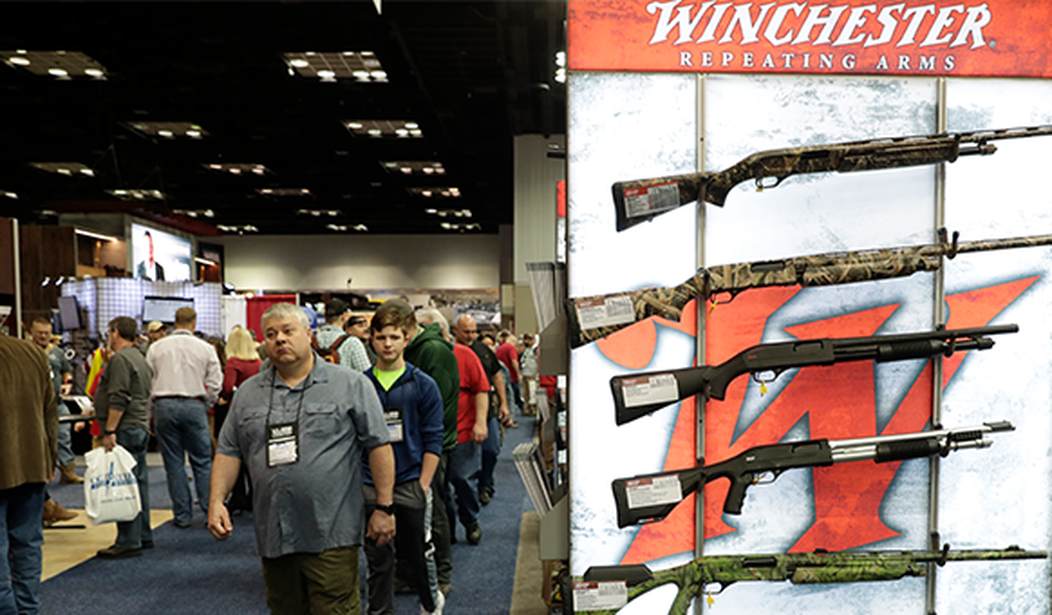Over the past several years, we’ve provided plenty of coverage of how the government of the state of New York managed to drive away Remington Arms (along with all of the jobs it provided in the upstate region) into the arms of more welcoming states in the south. But that trend was not limited to just one company. This week, the Boston Globe takes a deep dive into the way similar departures have been underway across the northeast. This is particularly true in Western Massachusetts and Connecticut, a region that became colloquially known as “Gun Valley.” The report points out that the region’s history with gun manufacturing dates back to the time of George Washington when he stored colonial cannons and other weapons there to keep them safe from British landing parties.
Over the decades to come, Winchester, Colt, Springfield, and Smith & Wesson all made their homes there. But in just the past decade, the situation has shifted dramatically. A region that produced half of the non-military firearms sold in the United States in 2010 shipped out only 18% of the nation’s total gun purchases last year. Southern states have been aggressively courting these companies and offering rich incentives for them to pack up and move to a place where they will be appreciated. And the message has sunk in.
What Washington long ago launched, the economy and politics are taking away. Gun Valley is rapidly declining as more conservative states lure gun manufacturers away with promises of cheaper labor and energy costs, generous incentives, and more favorable gun laws. Northeastern politicians, meanwhile, have increasingly targeted these companies for their roles in perpetuating gun violence — even as these same officials regret the erosion of the industrial workforce gun-making has sustained…
“Other states are very aggressive in recruiting these companies,” said Mark Oliva, managing director of public affairs for the National Shooting Sports Foundation, adding that governors from six states came to the group’s SHOT Show in Las Vegas in January looking to court gun manufacturers. None were from the Northeast.
It’s easy to understand why some states are eager to attract gunmakers: This is an era of unprecedented growth in the civilian firearms market.
Ryan Busse, a former executive from Kimber Manufacturing, a firearms company that moved from New York to Alabama two years ago, summed up the simple message that the state government of Alabama pitched to Kimber. “Come to a place where you’re loved and we’ll pay you to do it.”
This is precisely what we saw playing out at Remington Arms, but it has now impacted every major firearms company in Gun Valley. Why in the world would you stick around and keep providing jobs and paying taxes in a state where the government constantly villainizes you? In Springfield, Massachusetts, Smith & Wesson employed more than 2,000 people last year. Recently, Massachusetts Senator Ed Markey led a protest outside of the company’s gates following a mass shooting in another state. Do you know what Smith & Wesson is doing now? They’re moving to Tennessee.
In very short order there will be virtually no firearms manufacturers left in the region. This is a stunning example of poor timing and a missed opportunity. Privately owned firearms are growing steadily more popular in the United States, not less. Total firearms sales in 2000 were 3.8 million. In 2020 the total sales had climbed to more than 11 million. And that means that production levels are up and the companies are hiring more workers for blue-collar jobs that pay far above minimum wage.
But all of those jobs will be going to people in Alabama, Tennessee, and Kentucky, along with some other southern states. Perhaps a few people from Massachusetts, Connecticut, and New York will make the move with the company. But will the locals want a bunch of northeasterners showing up in their states and voting like they did up north? Perhaps that pitch to these companies needs to be modified slightly. “Come to a place where you’re loved and we’ll pay you to do it. Just don’t bring a crowd of liberal loonies with you. We’ve got plenty of workers here.”








